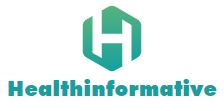A retrospective analysis of NIH-funded digital health research using social media platforms.
Social neighborhood platforms are increasingly utilized in digital health research. Our research aimed to 1. qualify and quantify the use of social media platforms in health research supported by the National Institutes of Health (NIH) and doc modifications occurring between 2011 and 2017 and a pair of.
take a look at whether or not or not institutions web internet hosting these research provided public-facing recommendations on recommendations on conduct ethical social media health research.
The NIH RePORTER (Research Portfolio Online Reporting Tools) database was searched to ascertain research using Instagram, Pinterest, Facebook, or Twitter. Studies included used social media for observational research, recruitment, intervention provide or to consider social media as an environment friendly research machine.
Abstracts have been qualitatively analyzed to elucidate the inhabitants and health matter by 12 months. Websites of organizations receiving funding for this research have been searched to ascertain whether or not or not guidance or protection existed.
ResultsStudies (n = 105) have been organized by inhabitants targeted and health focus. Main “Health” themes have been labeled: 1. substance use, 2. sickness/analysis, 3. psychiatry/psychological health, and 4. weight and bodily train.
The populations most involved included adolescents and youthful adults, and males who’ve intercourse with males.
The amount of research research using social media elevated roughly 590% between 2011 and 2017. Studies have been linked to 56 organizations of which 21% (n = 12) provided some accessible guidance with 79% (n = 44) offering no guidance explicit to social media health research.Social media research is carried out with weak populations which could be traditionally robust to attain.
There is a compelling need for property designed to assist ethical and accountable social media-enabled research to permit this research to be carried out safely.

Addressing Cancer Health Disparities inside the Pacific Peoples of Hawai’i, Guam, and the US Associated Pacific Islands Through Pacific-Focused Research Capacity Building.
Sociocultural, geographic, and biologic components contribute to most cancers health disparities (CHDs) in indigenous Pacific peoples (IPPs) in Guam, Hawai’i, and the US Associated Pacific Islands (USAPI).
IPPs experience a greater burden of CHDs which could be associated to late-stage analysis and poor survival outcomes in distinction with majority populations inside the United States.
A 16-year partnership between the University of Guam (UOG) and University of Hawai’i Cancer Center (UHCC) targets to advance health equity in Guam, Hawai’i, and the USAPI by most cancers research, teaching, and outreach.
Investigators at collaborating institutions research factors of regional and cultural relevance in IPPs, along with breast, cervical, liver, and oral cancers and use of tobacco and betel nuts (Areca nuts).
Junior faculty with IPP ancestry or these which are centered on CHDs in IPPs acquire mentorship and career development options, tutorial fellowships are provided for graduate faculty college students, and Pacific Island communities are engaged by a participatory development course of. The partnership has generated better than 90 peer-reviewed publications, better than 100 abstracts, and 11 grant awards.
Thirty graduate college students from under-represented minorities have been expert, along with two who’re really UOG faculty and are conducting unbiased research, contributing to the partnership, and mentoring scientists of tomorrow.
Participatory neighborhood engagement has contributed to the passage of important most cancers prevention and administration legal guidelines in Hawai’i, Guam, and Saipan. Research functionality at UOG has elevated significantly, and research at UHCC has expanded to take care of factors distinctive to IPPs. Graduate faculty college students from under-represented minorities are pursuing careers in most cancers research.
A regional research infrastructure has been established to assist group science, and research findings are informing public health protection and planning.
